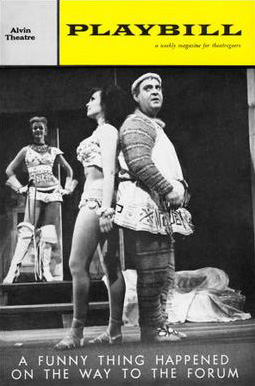
A Funny Thing Happened on the Way to the Forum is a musical with music and lyrics by Stephen Sondheim and book by Burt Shevelove and Larry Gelbart.

The Threepenny Opera is a 1928 German "play with music" by Bertolt Brecht, adapted from a translation by Elisabeth Hauptmann of John Gay's 18th-century English ballad opera, The Beggar's Opera, and four ballads by François Villon, with music by Kurt Weill. Although there is debate as to how much, if any, contribution Hauptmann might have made to the text, Brecht is usually listed as sole author.

The Beggar's Opera is a ballad opera in three acts written in 1728 by John Gay with music arranged by Johann Christoph Pepusch. It is one of the watershed plays in Augustan drama and is the only example of the once thriving genre of satirical ballad opera to remain popular today. Ballad operas were satiric musical plays that used some of the conventions of opera, but without recitative. The lyrics of the airs in the piece are set to popular broadsheet ballads, opera arias, church hymns and folk tunes of the time.
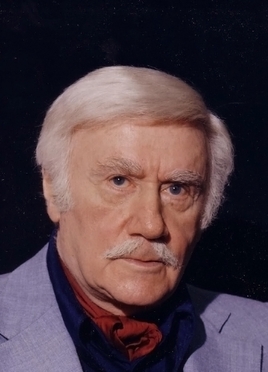
Mitchell Parish was an American lyricist, notably as a writer of songs for stage and screen.

Arthur Terence Galt MacDermot was a Canadian-American composer, pianist and writer of musical theater. He won a Grammy Award for the song "African Waltz" in 1960. His most-successful musicals were Hair and Two Gentlemen of Verona (1971). MacDermot also composed music for film soundtracks, jazz and funk albums, and classical music, and his music has been sampled in hit hip-hop songs and albums. He is best known for his work on Hair, which produced three number-one singles in 1969: "Aquarius/Let the Sunshine In", "Good Morning Starshine", and the title song "Hair".
John Treville Latouche (La Touche) (November 13, 1914, Baltimore, Maryland – August 7, 1956, Calais, Vermont) was a lyricist and bookwriter in American musical theater.
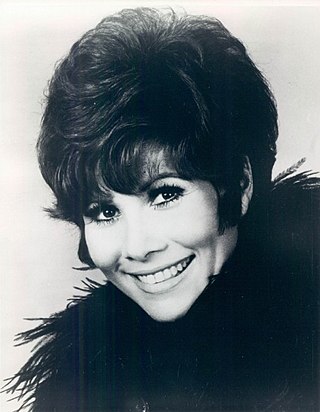
Michele Lee is an American actress, singer, dancer, producer and director. She is known for her role as Karen Fairgate MacKenzie on the prime-time soap opera Knots Landing, for which she was nominated for a 1982 Emmy Award and won the Soap Opera Digest Award for Best Actress in 1988, 1991, and 1992. She was the only performer to appear in all 344 episodes of the series.

Luther Henderson was an American arranger, composer, orchestrator, and pianist best known for his contributions to Broadway musicals.

Howard da Silva was an American actor, director and musical performer on stage, film, television and radio. He was cast in dozens of productions on the New York stage, appeared in more than two dozen television programs, and acted in more than fifty feature films. Adept at both drama and musicals on the stage, he originated the role of Jud Fry in the original 1943 run of the Rodgers and Hammerstein musical Oklahoma!, and also portrayed the prosecuting attorney in the 1957 stage production of Compulsion. Da Silva was nominated for a 1960 Tony Award as Best Featured Actor in a Musical for his work in Fiorello!, a musical about New York City mayor LaGuardia. In 1961, da Silva directed Purlie Victorious, by Ossie Davis.

Doretta Morrow was an American actress, singer and dancer who appeared in stage and television productions during the 1940s and 1950s. She is best remembered for having created roles in the original productions of three successful Broadway musicals: Kitty Verdun in Where's Charley? (1948), Tuptim in The King and I (1951) and Marsinah in Kismet (1953). She co-starred in the 1952 Hollywood film Because You're Mine, as Mario Lanza's love interest. She appeared in several live television musicals. She retired from performance in 1960 at the age of 33.

The Beggar's Opera is a 1953 British historical musical film, a Technicolor adaptation of John Gay's 1728 ballad opera of the same name. The film, directed by Peter Brook in his feature film debut, stars Laurence Olivier, Hugh Griffith, Dorothy Tutin, Stanley Holloway, Daphne Anderson and Athene Seyler. Olivier and Holloway provide their own singing, but Tutin and others were dubbed.
The Education of H*Y*M*A*N K*A*P*L*A*N is a musical with lyrics and music by Oscar Brand and Paul Nassau. The musical book by Benjamin Bernard Zavin is based on Leo Rosten's stories of the fictional character Hyman Kaplan.
Maceo Pinkard was an American composer, lyricist, and music publisher. Among his compositions is "Sweet Georgia Brown", a popular standard for decades after its composition and famous as the theme of the Harlem Globetrotters basketball team.
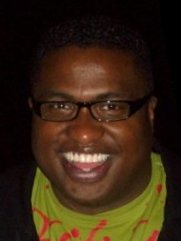
Michael-Leon Wooley is an American actor. He was the voice of Louis the Alligator in Disney's Oscar-nominated animated feature film, The Princess and the Frog and played Judge Grady on the radio station WKTT in Rockstar's Grand Theft Auto IV.
Comes Love" is a 1939 jazz standard. It was composed by Sam H. Stept, with lyrics by Lew Brown and Charles Tobias. It was featured in the Broadway musical Yokel Boy, starring Phil Silvers and Buddy Ebsen, where it was introduced by Judy Canova.
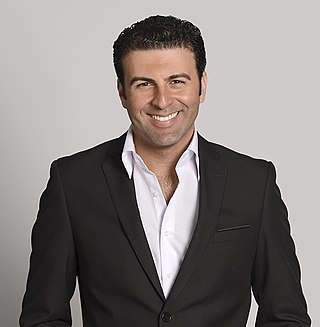
David Serero is a Moroccan-French baritone opera singer. He has played more than 1,500 concerts worldwide, and lead roles in opera, theater and musicals such as Cyrano (Cyrano de Bergerac), Shylock, Othello (Othello), Nabucco (Nabucco), Don Quixote, Richard III, Napoleon Bonaparte, Escamillo (Carmen), Enrico, Amonasro (Aida), the title roles of Don Giovanni and Rigoletto and starred in more than 100 films and TV series. He has toured in America, Europe, Middle East, Asia and Russia. In 2017, David Serero was honored in Marquis Who's Who for outstanding achievement in the entertainment world and for his contribution for the betterment of contemporary society. He is a member of the Recording Academy (Grammys) and the Television Academy of Arts & Sciences (Emmys), for which he is both a voting member. In 2019, he is named one of the top most influential Moroccans by airline Royal Air Maroc, and received the 2019 Albert Nelson Marquis Lifetime Achievement Award. In 2020, he receives the Award for Diversity by the Unesco. He wins the 2020 BroadwayWorld Awards for Best Performer of the decade, Best Producer of a Musical of the decade, Best Producer of a Play of the decade. The Mayor of New York, Bill de Blasio, awards him with the Certificate of Recognition for his contributions to the City of New York.

Make It Snappy was a musical revue that ran for 96 performances at the Winter Garden Theatre in the 1922–23 Broadway season. It ran from 13 April to 1 July 1922. It starred Eddie Cantor, who introduced the hit songs "Yes! We Have No Bananas" and "The Sheik of Araby".
Jimmy Lewis was an American double bassist who worked with the Count Basie Orchestra and sextet in the 1950s and with Duke Ellington, Cootie Williams, Billie Holiday and Ivory Joe Hunter before moving to bass guitar during his time with King Curtis. He provided the basslines for the musical Hair. Lewis freelanced extensively and performed on many albums by soul and jazz musicians, including Horace Silver and the Modern Jazz Quartet up until the late 1980s. He died in 2000.
Sally Smith is a British actress born in Godalming, Surrey. Although primarily a star of both dramatic and musical theatre she appeared in several films and dozens of television shows.













